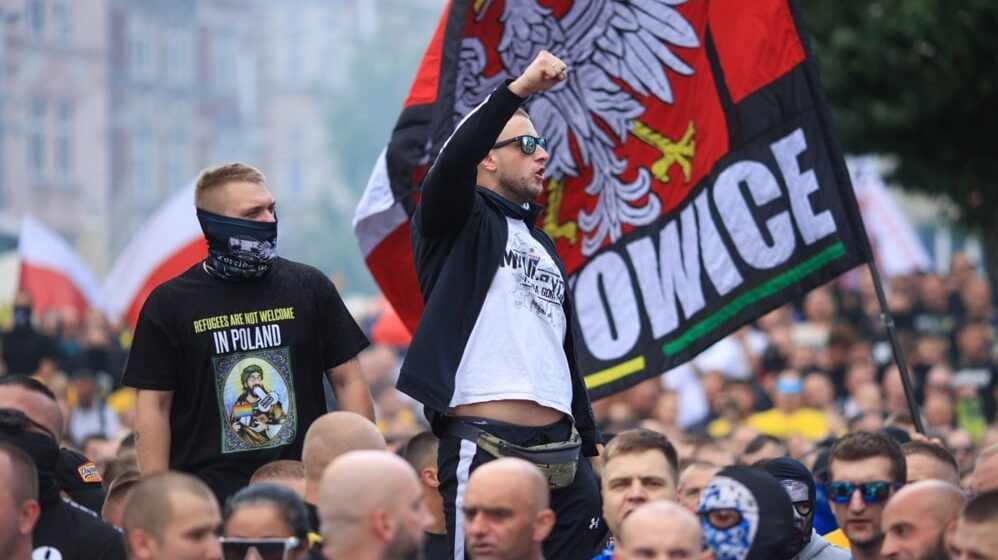The slide from rhetoric to street-level hostility hasn’t happened in a vacuum.
The first studies documenting rising hostility appeared as early as autumn 2022. Sociologists Slawomir Sierakowski and Przemyslaw Sadura captured the trend in their report “Poles for Ukraine, but Against Ukrainians”. Just months after unprecedented solidarity, respondents across social groups were already expressing concern over whether the country’s welfare system could cope with the newly arrived refugees.
In early 2025, a survey led by Dr Robert Staniszewski at the University of Warsaw found that respondents who admitted losing sympathy towards Ukrainians often described them as “entitled”, “lacking gratitude” and “demanding social benefits” – despite economic data proving the contrary.
According to Dominika Sitnicka, a political journalist at OKO.press, those trends were confirmed by internal polling carried out by all the major parties ahead of the presidential election campaign.
“I remember conversations with politicians at the start of the campaign – everyone had already seen those numbers,” Sitnicka says. “They knew resentment toward Ukrainians was growing. Nobody wanted Russia to win the war and everyone still hated [Russian President Vladimir] Putin, but social fatigue and irritation had set in.”
As a result, candidates from the three dominant parties – the ruling liberal Civic Coalition (KO), the right-wing opposition Law and Justice (PiS) and the far-right Confederation (Konfederacja) decided to play the anti-Ukrainian card.
“Slawomir Mentzen from Confederation built his entire campaign on it, and his party gained in the polls,” Sitnicka says. “PiS chose Karol Nawrocki partly because he was associated with anti-Ukrainian views. From the outset, his rhetoric was radical, including claims that Poles should have priority access to healthcare over Ukrainians. It was, in effect, a call for apartheid.”
Few expected Rafal Trzaskowski, the KO candidate and early frontrunner, to echo similar themes. Yet in January, he declared that the 800+ child benefit should not apply to refugee families whose parents don’t work.
“Trzaskowski didn’t sound credible in that role,” Sitnicka observed. “But, off the record, KO politicians admitted they had to address the resentment somehow, and this was the most veiled way to do it.”
The rightward turn didn’t pay off. Nawrocki won on June 1.
“Trzaskowski’s campaign helped legitimise narratives that had until then come only from the far right, giving them a more ‘respectable’ face – and that strengthened the whole wave,” Skorka says.
“It was a political game played at people’s expense,” Sitnicka claims. “Watching the Sejm today – even the debates on extending the legal stay of Ukrainian refugees – you can see the entire political scene shifting to the right. PiS politicians, who once led the first wave of solidarity with Ukrainians, now talk about ‘entitled people’ and ‘supporting two nations’. Two years ago, only Confederation used that language; now it’s mainstream across the right.”
“Politicians like to think they’re simply following public emotions,” she concludes, “without realising they’re also shaping them.”
The consequences extend beyond domestic politics. “People forget that half of the war in Ukraine is information, not just tanks and planes,” Kaszuwara says. “So, when Polish politicians start using that kind of language, there are two casualties: it reinforces the Kremlin’s story, and it poisons our own public space, turning online hate into something people live and breathe offline.”
